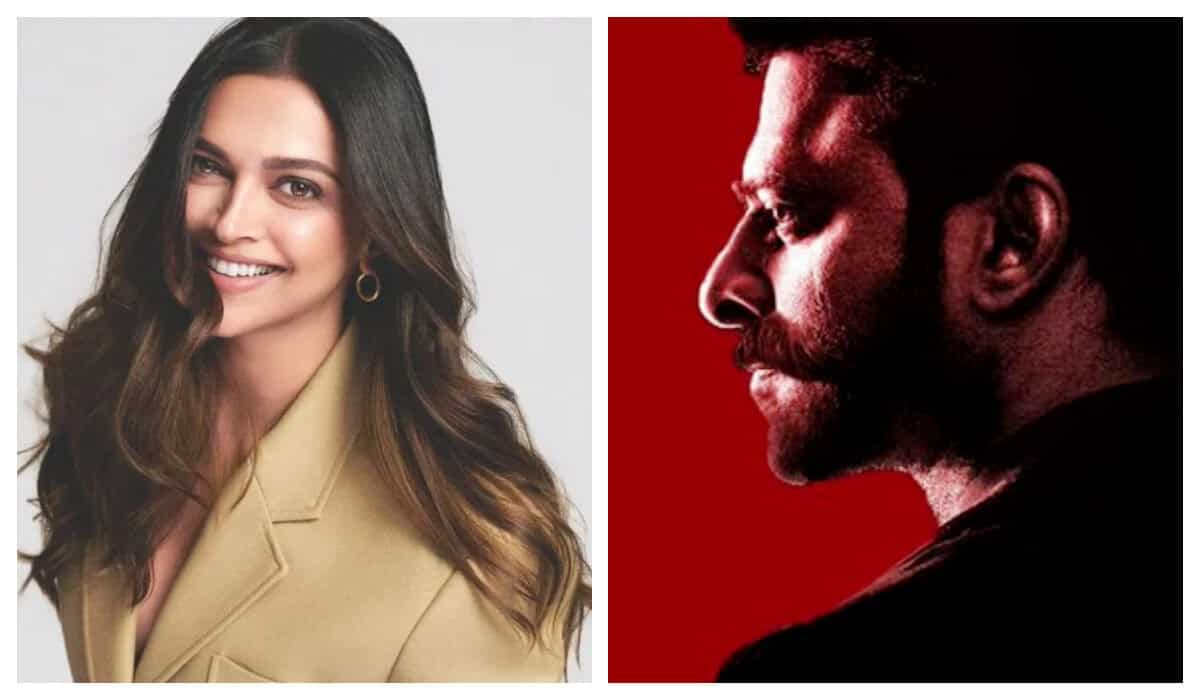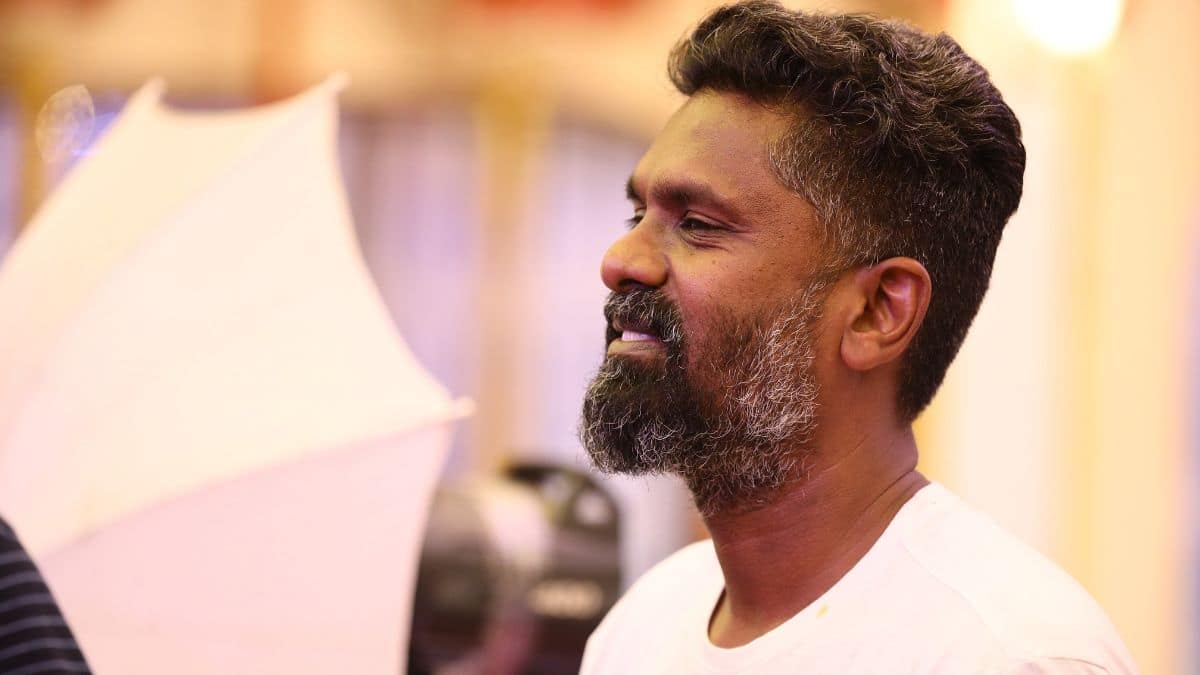
With Meiyazhagan, I Wanted To Speak Positively About Love & Affection: Filmmaker C Prem Kumar
6 months ago | 5 Views
DIRECTOR C PREM KUMAR'S sophomore film Meiyazhagan has touched hearts quite like his debut 96. While 96 left you feeling an unexplained ache for a first love lost, his latest release about the bond between two men is like a cool balm on wounded hearts, or like a character says, drinking water after eating a puckeringly sour gooseberry.
Starring actors Karthi, Arvind Swami, Devadarshini and Sri Divya, among others, the film is a throwback to gentler times, as also a deep dive into what makes the world a kinder place to live in. It is a film that features numerous conversations, each one unravelling layer after layer of a person who has seemingly closed his heart to his past, and who holds on to festering resentment.
It is also a film that throws the spotlight on men, but not once does it slip into territory that you’re now convinced any bro-bonding film will take you to. Because, the audience almost seems to know it’s Prem’s film. To create this kind of expectation with just one film takes a special kind of talent, and Prem seems to possess it in plenty. He calls himself a student of life and Nature, and his films celebrate that primordial ability to love and care for another being.
Edited excerpts from an interview:
Your films are dedicated to Nature, and come from a space of certain purity. In 96, Ram finds his peace in the forests, here a conversation amid Nature is healing for Arulmozhi. How did this come about?
The first thing is to start believing that we are a part of Nature. Just because we are spoiling it, does not mean we are not a part of it. When you think you are part of Nature, your thought process changes, your behaviour changes. It’s in the past century that we’ve seen Nature as something that’s not a part of us, and we see the end result. I think we need to go back, and learn to willingly share our space with her.
We share this space with insects, snakes, dogs etc and we tend to think we are superior and claim possession just because we can take control. But, when you turn one with Nature, you’ll show love, and then sharing becomes automatic. Else, you tend to drift.
The men you write also tear up and weep easily, in a very organic, non-dramatic way. You’ve normalised men expressing their emotions…
High time we normalised it, no? For decades, we have been told that crying is a sign of weakness, that if someone is of a helping nature, he or she is jobless, and that if someone fights for social causes, they don’t know how to live a regular life. This thought has only increased with time. It was not like this even three decades ago. Fighting for a cause was a way of life. Now, innocence is looked upon as ignorance. That’s a big issue too. Tears are cleansing. And everyone needs a good cry, once in a while.
Even now, in Chennai’s Valluvar Kottam, some people stand in that heat, raising their voice for social causes they are not even directly linked to. And what do most people think of them? That they are jobless people who are lazy to work. Look at it this way. These 100 are fighting a battle that should ideally be done by millions. They probably take leave to take part in that protest, they give their time for someone. The least we can do is respect that person and not demean them. All these selfless characters can do is love and cry for others. And, I love people like them. I want to be like them, but I possibly cannot, so my characters will have their traits.
I wish we reach a place where people fighting for others’ causes becomes normal. I wish we get to a place where neutral people move towards change.
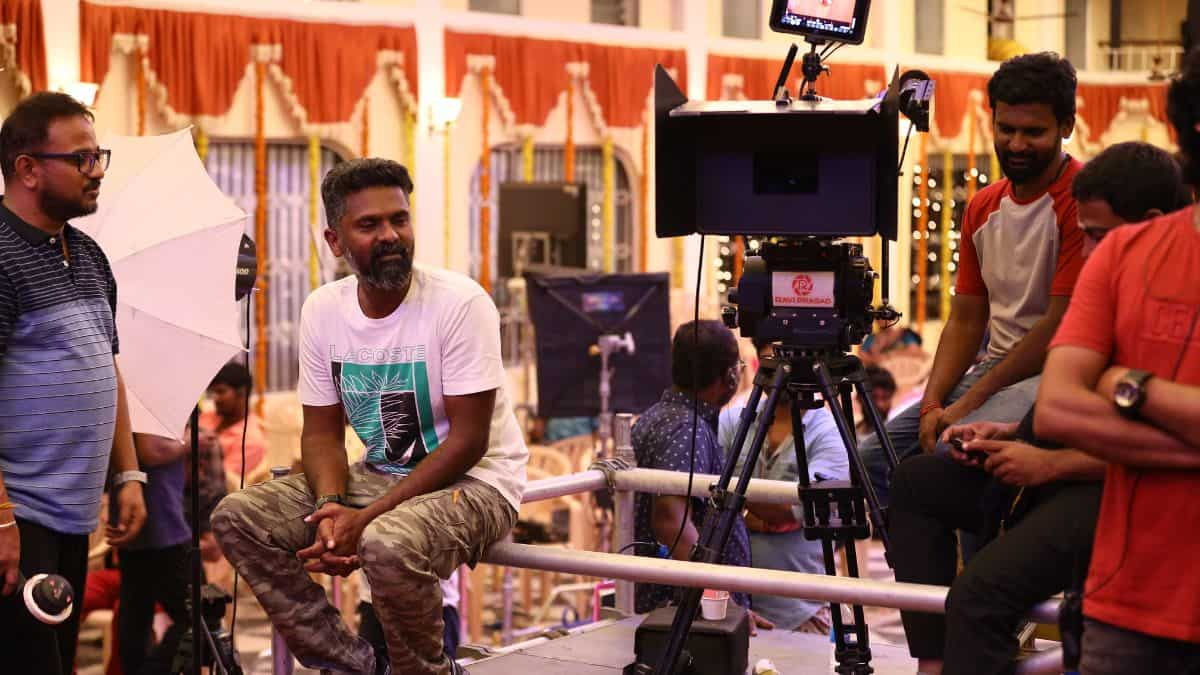
You are one of those rare filmmakers whose second film has lived up to the hype of the first. But what was this phase in between the two like?
It was quite tortuous. I was writing a dark story and went into a strange space. I did not eat, I lost weight and I was ready to let it all go. Meiyazhagan saved me in so many ways. This was also when I saw the true side of so many of my so-called friends. We tend to think we will only experience unconditional love and support from some sources. But, I realised that’s not true. I saw how things changed around me.
I see movies as a piece of art, an expression of what I feel. And, I think after a movie, we move on to the next one. I don’t call a movie a success, because art is emotional, success is commercial. And, money and fame change people. And, I’m clear that if anything, I want only good people around me, even if it means I just have a handful of trusted friends.
It was when I was in such dire straits that I began writing Meiyazhagan. In many ways, I am Arulmozhi, we lost our home too. And, I’ve been the recipient of boundless love. So, I wanted to speak more positively about love and affection. I wanted to show that nothing is above innocence. Like honesty, affection is not a choice. It has to be there. And, I wanted to showcase that in a non-preachy, accessible way.
Thankfully, it has been accepted.
What was the most enjoyable part of Meiyazhagan?
The writing, for sure. That is the core, and I always wanted to become a writer. There’s something primordial about writing, painting and music. It is said that every other art form came from them.
I write with my cats around me. The kittens sit around me, and when they sleep on the notebook, I write in the space they leave for me. When I write I am in a possessed state, and that frame of mind lasts a couple of weeks. It is almost an orgasmic state.
Your hands can’t keep pace with the speed of the mind. When you’re done with a thread of thought, you feel like you’re taking a lungful of breath after some time underwater.
But, the best part is that you know that you are chosen to do this. The story chooses its author.
You should gracefully accept that position and write. You should be loyal only to your story, and that invariably means you can’t do anything else. I have this compulsive need to keep myself clean. I keep washing up, sometimes taking four to five baths a day. But, when I am not in my zone, I don’t bathe for days, I don’t eat, I survive on water, and I don’t sleep. I only serve the story.
How easy is it for Prem to be pleased with the writer and director in him? Do you occasionally admire your work?
Not really. I like to stay elusive, and don’t want to be in the forefront. I think people should watch my creations, not me. I don’t know how to react when they walk up to me, and tell me they like my work. I am afraid that will trigger changes in me, because at some point we are all sensitive to flattery.
I prefer being in a position where I am not recognised, so I can be closer to people, and observe them well. I can then have unfiltered conversations. These are the people I transform into characters. Now, I’m easily recognised, they see me as a director, and my daughter gets irritated when our time gets taken away. Once there’s fame and recognition, I think I will be on losing ground. Would I start playing to the gallery? Hence, I prefer that my creation speaks, not me.
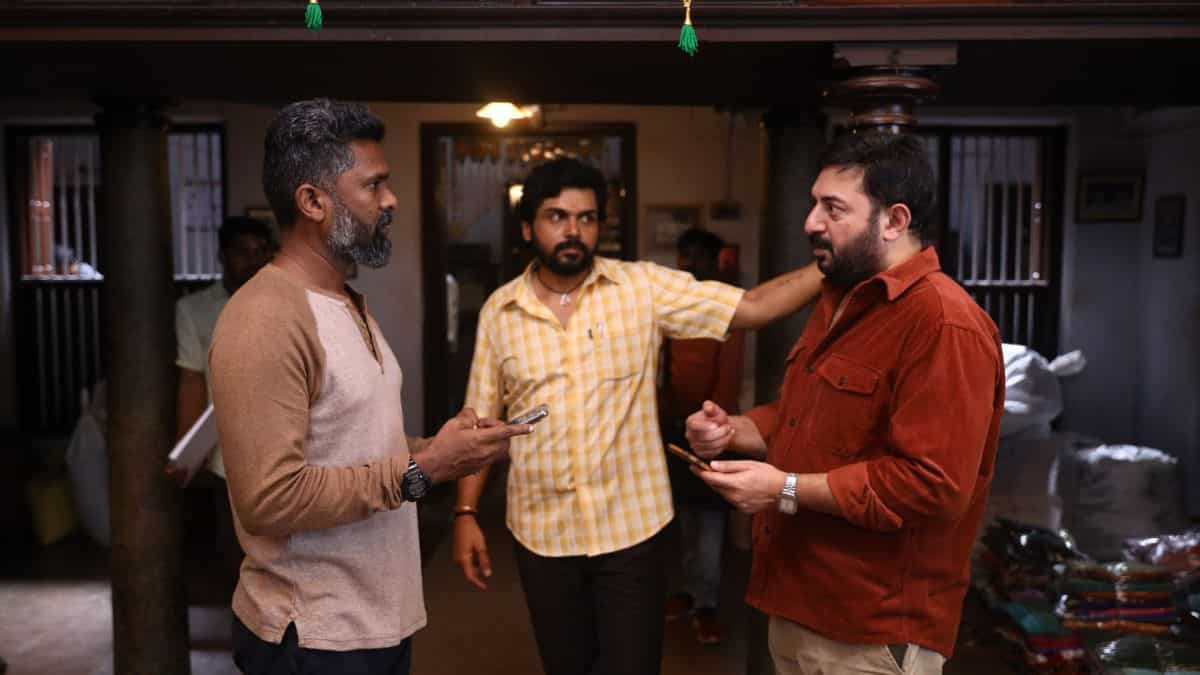
You cast very differently for your movie, nudging actors into roles that go against the grain…
I never have to convince anyone. They are hungry actors always on the lookout for good roles. Sometime when we were making 96, Sethu (Vijay Sethupathi, its hero and Prem’s friend) asked me if I was a fan of any actor. My only reply was Karthi. That’s because he never looks or behaves like a star. And, he’s beautifully escaped stereotypes over the years. And, he’s telling my story.
I knew Arvind Swami sir was very selective when picking scripts. And he knew I would not move forward if he did not come on board, because I wrote this keeping Karthi and Arvind Swami Sir in mind. “Sir, I am doing this film. I love the story,” he replied. And, I realised that he knew I was anxious.
I always try to get good-hearted actors for my films. For me, more than a performance, the focus is on true expression. Even if you don’t know to act, it’s fine. If there is goodness, a performance can be derived.
I am blessed that I got gifted, kind people — Rajkiran Sir, Devadarshini, Sri Divya, Saran Shakthi, Jayaprakash, Swathi Konde, Sriranjani, Illavarasu — who trusted the film’s vision, and mine.
For instance, once I sent across a dialogue sheet with a line in it where someone is being scolded, and waited to see Rajkiran Sir’s reaction. He’s himself a producer, director and actor. So he called me saying: “Thambi, this fourth line… why do we need this scolding?” I laughed and told him that I was expecting him to catch that line.
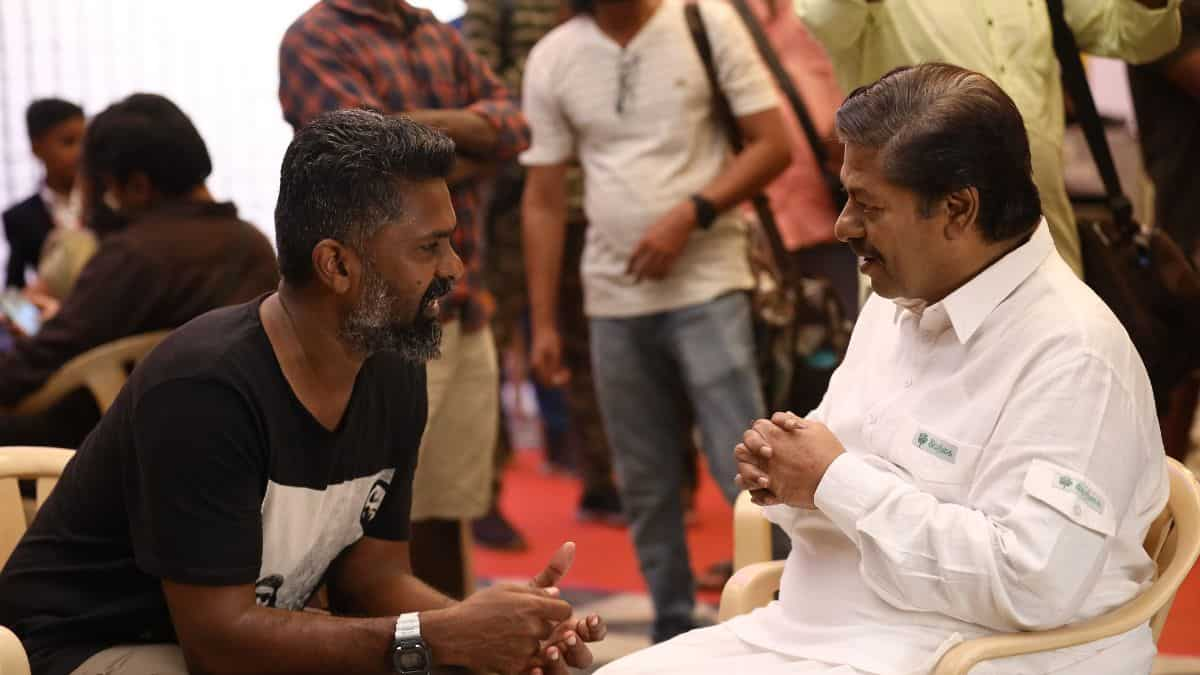
You’ve been receiving so many bouquets for Meiyazhagan. Which among these have been most moving?
The one common reaction to both 96 and Meiyazahagan is the word ‘thanks’. That’s a gift. This morning, while I was riding to the office and stopped by for tea, someone at the tea kadai (tea shop) turned to me to say "thanks" for the movie. I don’t think a film in any other genre would have elicited the word 'thanks' as a reaction. Something has touched their soul, and that thought moves me immensely.
So many tell me they felt like going back to their native place after watching the movie. What else can I ask for?
Some others have told me the film has been therapeutic for them and that it has healed them.
Many people specifically speak about the scene of Arul and Bhuvana on the wedding stage…some have loved it, some think it’s over the top. But, then, she’s giving him a gift too, right?
Very true. She’s gifting him as much as he is gifting her. That’s a transformational scene, that slowly chips away at Arul’s decision to stay away. I trusted the audience to allow that emotion to engulf them.
But, I understand those who don’t like it too. We are used to eating only half a stomach when it comes to emotions. We can’t find it in us to complete a full meal. We struggle.
Have you been the recipient of unconditional love?
Definitely, I have probably 5 or maybe 10 people who are that giving. It is my duty to share that unconditional love. It is also my duty to protect them to remain that way.
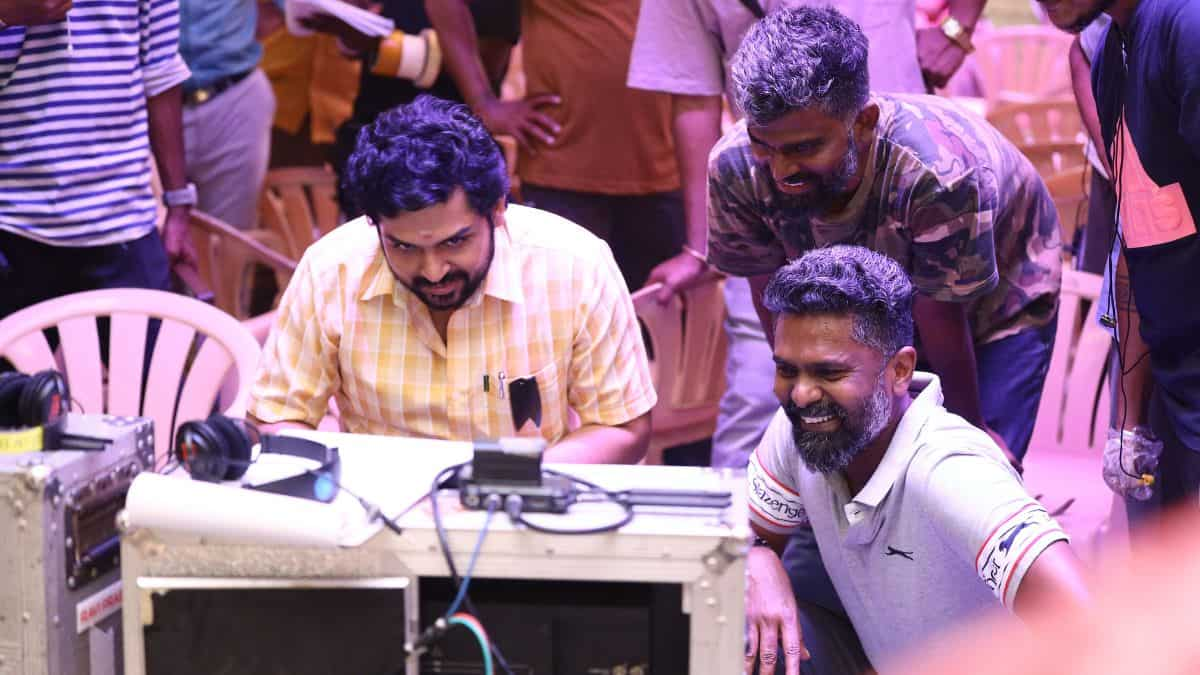
Music and lyrics have a very important role to play in your movies. Composer Govind Vasantha and poets Uma Devi and Karthik Netha are your co-travellers. How does this collaboration make you feel?
Music is among the most ancient of arts. It has the ability to be a time machine and take us to spaces in our lives that we have almost forgotten.
What a dialogue cannot convey, a performance can. And what a performance cannot, music can. Govind is a very private person and when he read the script first, he told me he felt challenged. That was enough for me. This finally turned out to be a movie where every single person surpassed their past best.
Govind has the ability to elevate emotions. If you’re crying within, he will make the tears emerge. His music is the breath of my film.
I have great respect, and a little bit of envy, for lyricists, because they deal with my heartbeat that is Tamizh all day. I don’t give them any deadline. I give them the tune and tell them to take their time. And, they rise to the occasion every single time.
What is the most joyous part of your journey in cinema?
That I have this opportunity to create. The sheer process of creation and the gift that it is. Nothing else comes close.
Read Also: #Yuva02: Yuva Rajkumar’s second film with THIS director?
HOW DID YOU LIKE THIS ARTICLE? CHOOSE YOUR EMOTICON !




